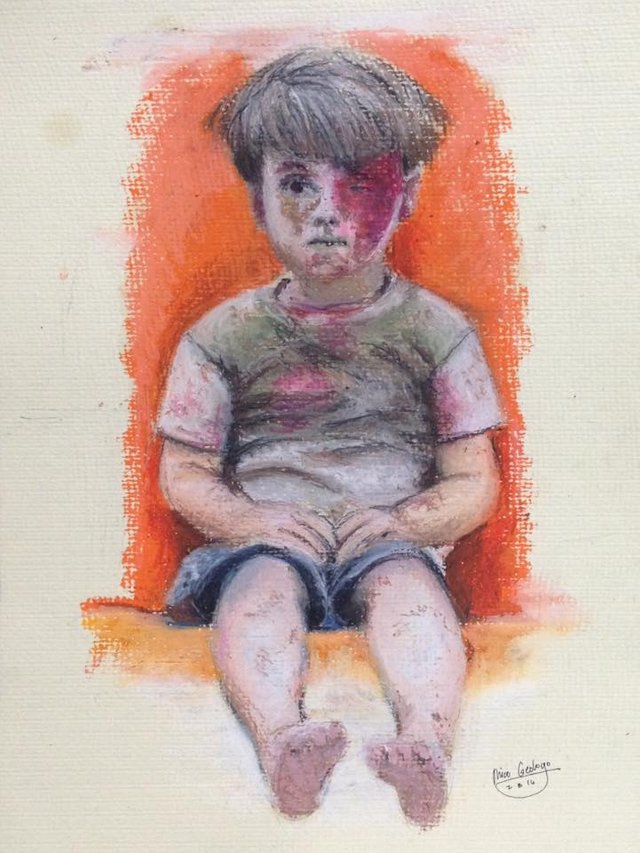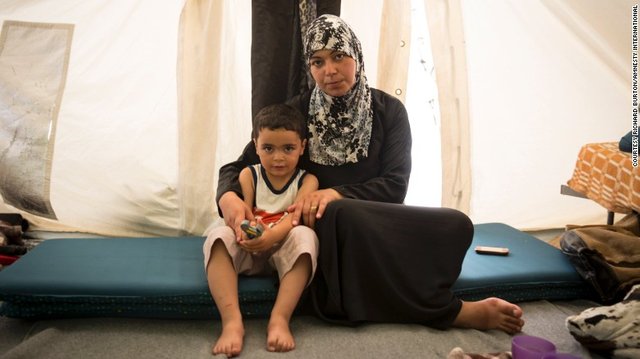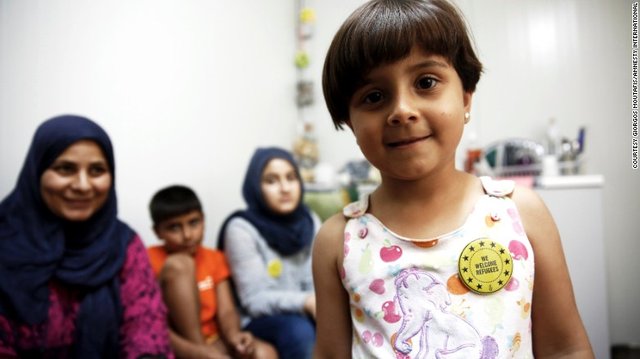
Syria's children -- and makes it easy to understand why parents would take their children on the desperate, arduous journey to Europe.
But if a child like Omran were to survive the trip and reach Europe's shores, their ordeal would be far from over.
On a visit to the Greek island of Lesvos, I saw first-hand what awaits them.

The scars of war
In a detention center on Lesvos I met Ahmed, a one-year-old baby who has been sick for almost all of his short life from what his mother described as a chemical attack.
She told me that a bomb destroyed their home soon after Ahmed was born, lodging shrapnel in his neck. Soon after, he developed severe asthma and other symptoms consistent with chlorine gas inhalation. When I met him almost a year after the bombing, I could see his scars and his little body struggled to breathe.
"I didn't want to leave Syria, but our house was destroyed," says Salwa, a 38-year-old teacher from Damascus, Syria, living in Softex Camp in Greece with her three-year-old son Hadi.
His family are Palestinians from Syria, who first fled the horrors of siege and starvation in Yarmouk camp, outside Damascus.
But the war followed them as they fled to Idlib in the north of the country. After a bomb hit their home, Ahmed's mother took them across the border into Turkey where they paid smugglers to take them across perilous waters in an overcrowded boat to the Greek islands.
Inside Greece's detention centers

Six-year-old Noura from Syria is trapped in Greece with her mother, two brothers and one sister. Noura hasn't been to school for over a year, and her mother says she's lost 2kg since arriving.
Once on land, Ahmed's family did not receive a warm welcome. They arrived after the EU-Turkey deal came into effect on March 20 this year, effectively transforming the islands into mass detention facilities.
Ahmed's family were locked up with more than 3,000 other people in Moria detention center, closed off from the outside world by barbed wire fences. When I saw them, they had no privacy and no idea what would happen to them next.
Instead of quickly providing Ahmed with the urgent medical care he needed, a doctor first gave the family a box of paracetamol.
Please lets spread this and lets help Syrian Children
